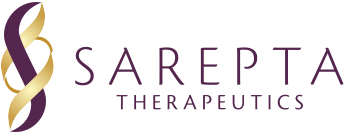February 25, 2022
Dear LGMD community,
With 2022 well underway, we are sharing a brief update about Sarepta’s Limb girdle gene therapy development programs.
- LGMD 2C/R5 (SRP-9005), 2D/R3, (SRP-9004) and 2E/R4 (SRP-9003) (sarcoglycanopathies): We are engaging with regulators and, throughout 2022, will continue our focus on building scalable manufacturing processes and capacity to conduct trials that will support potential regulatory approval.
- Toxicology studies—necessary for evaluating safety of therapies before advancing to the clinic--are ongoing in LGMD 2C and 2D.
- Data collection is ongoing in clinical Study SRP-9003-101 (LGMD 2E/R4). We will share updates with the community as appropriate. Long-term participant follow-up is continuing as planned.
- Sarepta is also supporting a natural history study – known as JOURNEY (NCT#04475926) – which is important in moving LGMD development programs forward. Learnings from the ongoing JOURNEY study will enable deeper understanding of LGMD types 2E, 2D, and 2C and may inform how we approach and design future clinical trials across our LGMD pipeline.
- LGMD 2B/R2 (SRP-6004, dysferlinopathy): We plan to initiate a proof-of-concept study in late 2022 while conducting additional manufacturing efforts in tandem.
- LGMD 2L /R12(SRP-9006, anoctamin-5): early-stage research and IND-enabling preclinical work is ongoing to support this program.
- LGMD 2A/R1 (calpainopathy): in 2021, Sarepta executed its licensing option for this investigational gene therapy after preclinical research provided early proof of concept for CAPN-3 in LGMD2A and supported further advancement. Additional supporting preclinical work is underway.
Across these programs there is an important and common need –to develop and deliver the best possible manufacturing process that can be used to support clinical trials for potential approval. In gene transfer therapies, regulators generally require the commercial manufacturing process to be in place prior to initiating late-stage clinical trials. The gene therapy manufacturing process is unique and complex, comprised of several time-consuming steps and components that need to be optimized to produce each dose of gene therapy. Refining the manufacturing approach for our most advanced programs will be the primary focus of our efforts in 2022.
We recognize the urgency felt by the community. Manufacturing timelines are driven by several factors – both within and outside of our control – including completion of preclinical studies, confirmation of manufacturing processes, dialogue with review bodies, etc. Please be assured that we are applying lessons learned from our SRP-9003 program for LGMD, SRP-9001 program for Duchenne patients, and other investigational gene therapy programs across the industry to pull timelines forward as quickly as possible for all our LGMD programs.
In the future, we will provide additional updates as we have them. In the meantime, the natural history study, JOURNEY, is active and enrolling. Gaining knowledge through this and other natural history studies will help us create an important fundamental framework for understanding LGMD with the goal of overcoming inherent challenges in developing therapies for such rare and heterogenous diseases.
Our commitment to the LGMD community is unwavering as we endeavor to develop transformative treatments. We look forward to providing more updates as the timelines become clearer in the future.
With our kind regards,
The Sarepta Patient Affairs Team
[email protected]
